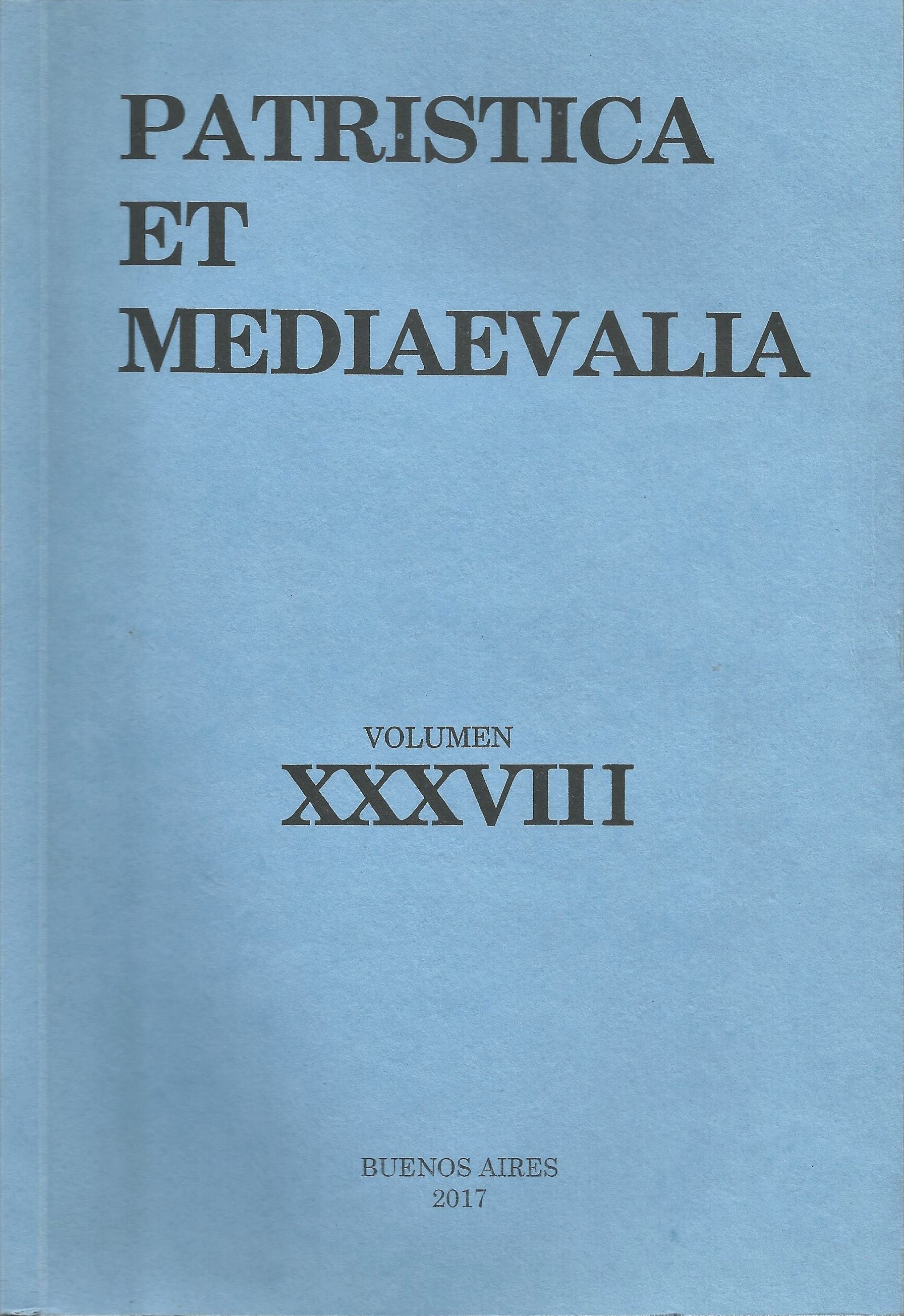Diego Pérez de Mesa’s ‘Política o razón de Estado’ and the Medieval Commentary Tradition on Aristotle’s Politics
Abstract
The work "Politics or Reason of State taken from Aristotle", written by Diego Pérez de Mesa, is not only based to a great extent on Aristotle's Politics, as its title openly acknowledges, but also on the most influential medieval commentary on politics, that is, the commentary initiated by Thomas Aquinas and completed by Pedro de Auvernia, something, by the way, that Pérez de Mesa no longer acknowledges. In this article I show the different ways in which Pérez de Mesa bases this commentary: sometimes he reproduces it textually or takes lines of reasoning from it, while on other occasions he criticizes it, particularly with regard to the scheme that the commentary offers about the ideal ruler. For Pérez de Mesa, the ideal ruler has its origin in the unity formed between the ruler and the Council of State and there must be regency according to the law, and not, as Pedro de Auvergne had maintained, according to the ruler's own will and intellect. Despite Pérez de Mesa's criticism of Pierre d'Auvergne's representation of the perfect ruler, it is remarkable that a treatise on the reason of state is so strongly based on an Aristotelian medieval commentary. The link between the reason of state and the end of "Political Aristotelianism" must be rectified.Downloads
References
Baldini, A. (ed) [1995]. Aristotelismo politico e ragion di stato: atti del convegno internazionale di Torino, 11-13 febbraio. Firenze: Olschki.
de Zárate Leira, J. M. (2015). Manuscrito con obras atribuidas a Diego Pérez de Mesa en la Biblioteca Histórica de la Universidad Complutense. In González Redondo, F. (ed.). Ciencia y técnica entre la paz y la guerra. 1714, 1814, 1914. Vol. II. Madrid: Sociedad Española de la Historia de las Ciencias y de las Técnicas, 1141-1148.
Fioravanti, G. (1997). La Politica aristotelica nel Medioevo: linee di una ricezione. Rivista di storia della filosofia 52, 17-29.
Höpfl, H. (2011). Reason of State. In Lagerlund, H. (ed.). Encyclopedia of Medieval Philosophy. Philosophy between 500 and 1500. Dordrech/Heidelberg/London/New York: Springer, 1113- 1115.
Lanza, L. (2011). Firenze e la lezione degli antichi: I Tratatti di Bartolomeo Cavalcanti. in Briguglia, G. & Ricklin, T. (Eds). Thinking Politics in the Vernacular. From the Middle Ages to the Renaissance. Fribourg (Suisse): Academic Press Fribourg, 167-188.
Lanza, L. (2013). Ei autem qui de politia considerat… Aristotele nel pensiero politico medievale (TEMA 71). Barcelona/Madrid: FIDEM.
Lanza, L. (2015). ‘The Scriptum super III-VIII libros Politicorum’. Some Episodes of its Fortune until the Early Renaissance. En Flüeler, Ch., Lanza, L. & Toste, M. (eds.), Peter of Auvergne, University Master of the 13th Century. Nueva York / Berlin: Walter de Gruyter, 255-319.
Martin, C. (1952). The Vulgate Text of Aquinas’s Commentary on Aristotle’s Politics. Dominican Studies 5, 35-64.
Navarro-Brotóns, V. (2006). The Cultivation of Astronomy in Spanish Universities in the Latter Half of the 16th Century. In Feingold, M. & Navarro-Brotons, V. (eds). Universities and Science in the Early Modern Period. Dordrecht: Springer, 83-98.
Quaglioni, D. (1978). Regimen ad populum e regimen regis in Egidio Romano e Bartolo da Sassoferrato. Bulletino dell’Istituto storico italiano per il Medioevo e Archivio Muratoriano 87, 201-228.
Stolleis, M. (1990). Staat und Staatsräson in der frühen Neuzeit: Studien zur Geschichte des öffentlichen Rechts. Frankfurt am Main: Suhrkamp.
Toste, M. (2007). Virtue and the City: The Virtues of the Ruler and the Citizen in the Medieval Reception of the Politics. In Bejczy, I., Nederman, C. (eds). Princely Virtues in the Middle Ages, 1200-1500. Turnhout: Brepols, 75-98.
Toste, M. (2011). Evolution within Tradition: The Vernacular Works on Aristotle’s Politics in Sixteenth-Century Itali. In Briguglia, G. & Ricklin, T. (Eds). Thinking Politics in the Vernacular. From the Middle Ages to the Renaissance. Fribourg (Suisse): Academic Press Fribourg, 189-211.
Viroli, M. (1992). From Politics to Reason of State. The Acquisition and Transformation of the Language of Politics 1250-1600. Cambridge: Cambridge University Press.
1. The authors who publish in this magazine accept the following conditions:
-
They retain the copyright and grant to the magazine the right of the first publication, with the work registered under the Attribution-ShareAlike 4.0 International License that allows third parties to use what is published as long as they mention the authorship of the work and the first publication in this magazine.
-
They can make other independent and additional contractual agreements for the non-exclusive distribution of the version of the article published in this magazine (eg. include it in an institutional repository or publish it in a book) provided that they clearly indicate that the work was first published in this journal.
-
They are allowed and recommended to publish their work on the Internet (for example on institutional or personal pages).
2. AutoArchive Conditions. Authors are allowed and encouraged to distribute post-print electronic versions of their manuscripts because it promotes their circulation, a possible increase of quotation and a major reach among the Academic community. Color RoMEO: blue.













